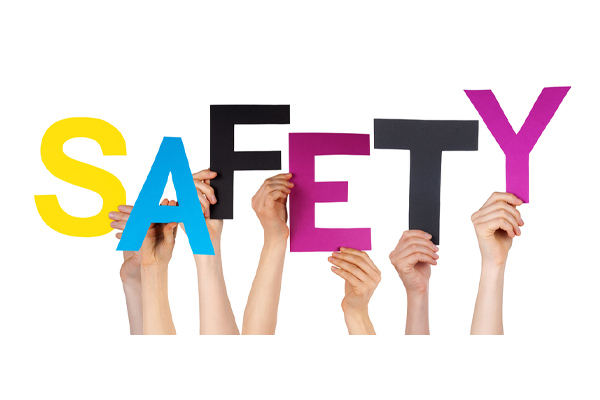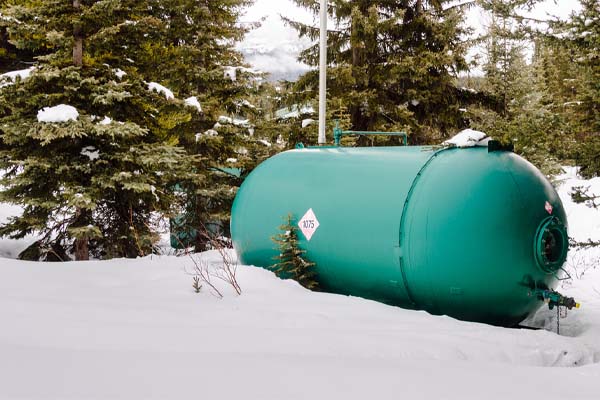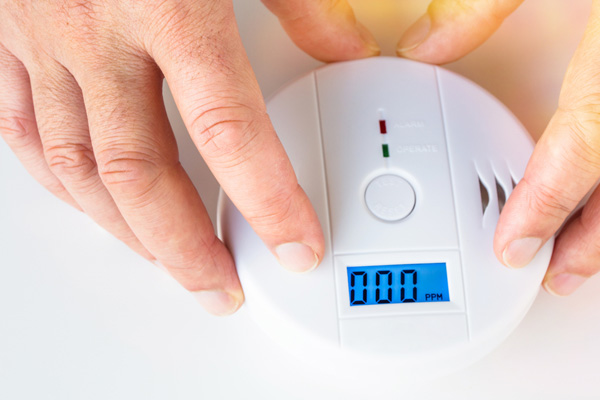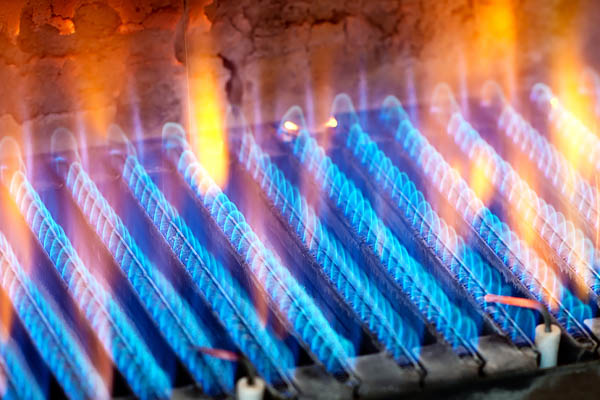Contents
- 1 Propane Safety Tips
- 1.1 1. Read & Adhere To The Owner’s Manual Instructions
- 1.2 2. Keep Your Propane Tank Clutter-Free
- 1.3 3. Install Carbon Monoxide & Smoke Detectors
- 1.4 4. Know The Precautions To Take In Case You Smell Propane Gas
- 1.5 5. Monitor The Pilot Light
- 1.6 6. Ensure Your Propane Tank Is Serviced Regularly
- 1.7 7. Replace Your Propane Tank When It Has Reached The End Of Its Lifespan
- 1.8 8. Check Your Residential Propane Tank After A Storm
- 2 Frequently Asked Questions About Propane Safety
- 3 Common Signs of a Problem with Your Propane Heating System Or Residential Propane Tank
- 4 Call Wilcox Energy For Reliable Propane Services

Propane is a type of hydrocarbon gas that’s compressed, stored, and supplied as a liquid. The gas is non-toxic, odorless, and colorless. It’s a safe, clean, and reliable source of energy. However, many homeowners ask about propane heating safety. Essentially, with a clear understanding of how to appropriately store and use propane, as well as how to detect gas leaks, you can prevent propane-related accidents. Here’s some more information on this propane heat.
Propane Safety Tips
 As a homeowner, it is important to know how to maintain your propane system. Likewise, it is vital to know how to detect leaks as well as what steps to take in case of an issue. Possessing this knowledge ensures that your propane system runs safely and smoothly. Here is how to ensure your propane systems remains safe and efficient:
As a homeowner, it is important to know how to maintain your propane system. Likewise, it is vital to know how to detect leaks as well as what steps to take in case of an issue. Possessing this knowledge ensures that your propane system runs safely and smoothly. Here is how to ensure your propane systems remains safe and efficient:
1. Read & Adhere To The Owner’s Manual Instructions
Get the specific information on how to care for your propane tank and propane heating system by reading and adhering to the owner’s manual instructions. The manual will inform you of the actions to take in case of hazardous situations like a leak. Also, make sure to service your propane heating system on an annual basis. Always work with a reputable HVAC contractor from your area.
2. Keep Your Propane Tank Clutter-Free

Propane tanks require lots of space. Therefore, make sure that there aren’t any items heaped around your propane tank — particularly anything that can ignite or flammable materials like textiles and paper. In spring, remove any grass clippings or any other debris, and in the fall, remove any leaves that may have piled up close to your tank. You should also keep away flammable items from your propane appliances as well.
3. Install Carbon Monoxide & Smoke Detectors

Carbon monoxide is an odorless and colorless gas, so you need a detector and that alerts you when carbon monoxide levels exceed the expected levels. Additionally, ensure you have a clear plan on what you’ll do if the detector goes off. You should also ensure the detector batteries are always in working order by checking them periodically.
4. Know The Precautions To Take In Case You Smell Propane Gas
You and everyone in your household should be aware of how propane gas smells. A sulfur-based compound, Ethyl mercaptan, is usually added to propane for safety purposes so that the gas can be detected when in use. The compound gives propane a unique smell — that of rotten eggs, a decaying animal, or skunk spray. If you’re unable to smell the gas for one reason or another, you should install a propane gas detector. If you smell it, put out all flames, put away electronic devices like your smartphone and then get out of the building. Once you’re at a safe distance, you can then call 911 to report a potential propane leak.
5. Monitor The Pilot Light

Propane heating systems often come with a pilot light. If the system is working well, the pilot light stays lit. Your pilot light going off typically signals that there are issues within the system. Reigniting the pilot light may seem like a quick fix that you can handle on your own, but the most prudent and safe option is to reach out to a professional to resolve the potentially underlying issue.
6. Ensure Your Propane Tank Is Serviced Regularly
Regular heating system maintenance and propane tank inspections are essential. Your propane supplier can inspect the propane tank and tell you if it needs any fixes.
7. Replace Your Propane Tank When It Has Reached The End Of Its Lifespan
Some of the problems with your propane system or tank may indicate the need for a propane tank replacement. Be sure to call a professional before potential issues occur.
8. Check Your Residential Propane Tank After A Storm
After a storm, you should inspect your tank as well as remove all the debris. You may need to remove the snow so that valves and vents are clear. In this case, you should use a broom instead of a shovel when removing the debris to reduce the likelihood of damage.
Frequently Asked Questions About Propane Safety

Can A Propane Tank Explode?
Typical propane tanks come with many standard safety features including, among others, in-built pressure maintenance devices, carbon steel construction, and puncture resistance. All of these safety features make propane tank explosions highly unlikely to happen. Most propane explosions are due to the accumulation of leaking gas in a given space combined with a source of ignition.
Is Propane Safe For Home Heating?
Propane is not toxic, so it doesn’t cause any health issues. Besides, propane is a safe home heating fuel as long as you take the necessary precautions.
What Are The Pros Of Using Propane?
Because propane burns efficiently, it’s one of the best heating fuels available today.
Common Signs of a Problem with Your Propane Heating System Or Residential Propane Tank

- Rotten Eggs Smell – If you notice this characteristic propane gas odor, your propane storage might be leaking, so you should get a professional to inspect it.
- Propane Tank Rust – When a tank is out of fuel, it can rust on the interior. Rust weakens the tank as well as interferes with the propane odor, making it harder for you to know when something is amiss.
- Damaged Tubing – The tubing that channels propane from your tank to your appliances should always be in good shape. Immediately replace torn or cracked tubing.
- Dings and Dents in the Tanks – Dings and dents are signs of damage, so get a professional to assess your tank if you notice any deformities.
- Extinguished pilot light – It could indicate that the tank has run out of propane and/or that there is a problem with your system.
Conclusion
Having an empty propane tank is a serious safety hazard because moisture and air can infiltrate an empty and cause rust. Rust diminishes the propane odor, making it harder to detect gas leaks. Therefore, having a reliable supplier of propane is perhaps the most important safety precaution.
Call Wilcox Energy For Reliable Propane Services

When you need a reliable propane delivery service on the southern shoreline of Connecticut, be sure to contact Wilcox Energy. We offer high-quality fuel deliveries that are fast, affordable, and friendly.
You can count on Wilcox Energy to provide you with unbeatable service each and every time.
Give us a call today to discuss our different delivery plans and financing options.
We also offer a full line of HVAC services to enhance your home’s comfort and energy efficiency. Some of the services that we offer include heater tune-ups, furnace repairs, HVAC installations, and much, much more. Call now!
For more information about our propane deliveries or HVAC services, contact Wilcox Energy. You can click here to contact us or you can call us at (860) 399-6218. We offer a full line of affordable and trusted home comfort services.
